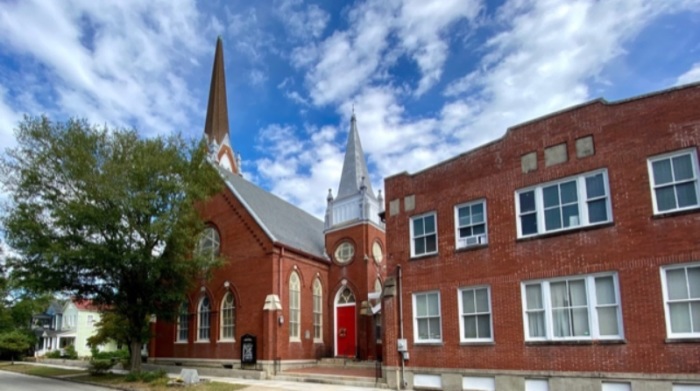UMC top court rules against church forcibly closed before it could disaffiliate

The United Methodist Church's highest court has ruled that a regional conference in North Carolina can shut down a congregation trying to leave the denomination.
Fifth Avenue United Methodist Church of Wilmington was shuttered by the UMC North Carolina Annual Conference in March, even though the congregation was discussing a possible disaffiliation from the UMC.
The United Methodist Judicial Council, the denomination's highest court, issued Decision 1490 on Tuesday, upholding the conference's closure of Fifth Avenue UMC.
The court concluded that "even though a local church has already initiated the disaffiliation process," nothing in the process "precludes that church from deciding to close without completing that process, either at the recommendation of the district superintendent or on its own."
"The annual conference has made the determination that Fifth Avenue should be formally closed, and it is not appropriate for the Judicial Council to second guess that judgment," the decision reads.
The high court noted that the conference followed the official process for closure, as the decision to close Fifth Avenue UMC received the support of the local bishop and a majority of the regional body's district superintendents and a district board.
"Fifth Avenue has been afforded all process that it is due under United Methodist polity," continued the ruling. "The appropriate forum for a challenge to the exigent circumstances and interim closure determinations was at the meeting of the North Carolina annual conference on June 16, 2023, and that challenge was in fact considered in debate, but did not prevail at the annual conference."
John Lomperis, a former UMC General Conference delegate and writer with the Institute on Religion & Democracy, denounced the Judicial Council ruling, tweeting that the decision "effectively declares 'open season' on congregations" planning to disaffiliate from the UMC amid an ongoing schism over the denomination's stance on sexuality.
"The ruling offers hollow assurance that this process 'has built-in safeguards,' [because it] requires consent of only majority of annually appointed DS's who 'serve at the pleasure of the bishop' (unlikely 2 ever cross their boss on such matters), and others named by this same DS's," he continued.
"The re-assurance that later, non-interim such actions can be blocked by AC vote ultimately offers little practical relief if simple majority of conference voters are prejudiced vs the bullied congregation because of theology, race, geography, personalities, or other reasons."
In March, the North Carolina Conference announced the church's closure during a meeting with the congregation, citing a considerable decline in worship attendance as the main reason.
According to the official statistics that the conference had on the church, the congregation had recently declined to a regular weekly attendance of around 20 people.
Fifth Avenue members were shocked by the news since their church leadership voted in February to begin the process of disaffiliation from the mainline Protestant denomination, following in the footsteps of over 240 congregations that disaffiliated in 2022.
In a statement emailed to The Christian Post at the time, the congregation said they thought the meeting "had been scheduled by the District Superintendent as part of an authorized disaffiliation process."
"Instead, the members were informed that the local church was closed, effectively ending Fifth Avenue's opportunity to disaffiliate," noted the church's statement.
"Fifth Avenue never asked for, agreed to or wanted the closure, nor were its members ever given a chance to participate in the decision to close the church down."
Over the past couple of years, thousands of primarily conservative congregations in the United States have left the UMC due to the denomination's ongoing debate over LGBT issues.
While the UMC Book of Discipline prohibits the blessing of same-sex unions, many progressives within the denomination have refused to follow or enforce the official rules.
According to numbers compiled by UM News that were accessed Thursday morning, 6,791 churches have left the UMC over the homosexuality debate since 2019, with over 4,700 of those departures happening this year alone.
Many of those churches have affiliated with the Global Methodist Church, which launched in 2022 as a theologically conservative alternative to the UMC.
Rev. Tara Lain, the superintendent of the Harbor District, which includes Wilmington, told CP in March that the Fifth Avenue has a membership of 205 and the conference wants "all our churches to thrive and make disciples of Jesus Christ."
"We believe this closure leads to rebirth, and we plan to use this space to meet the local community's clear, present, and pressing needs," Lain said.
Plans for the property include "a gathering space for senior adults and persons with disabilities," a place to "provide shelter and assistance following major storms," and "a welcoming space for worship and study for one or more new United Methodist faith communities," Lain said.
"All members of Fifth Avenue will be transferred to a local UMC congregation. Each congregant has the option to transfer to a congregation of their choice. The clergy will be cared for by the NC Conference Bishop and Cabinet," she added.




























